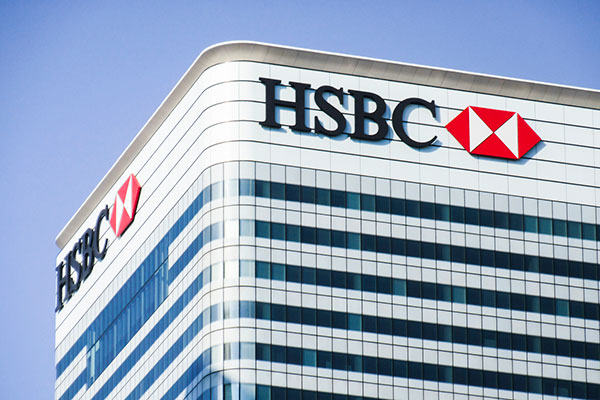HSBC shares soar after results and dividend promise
1st August 2022 08:53
by Richard Hunter from interactive investor
It's the best-performing London-listed bank of 2022 so far, and there's enough in these half-year results to send the share price sharply higher. Here's what our head of markets thinks.

HSBC Holdings (LSE:HSBA) has brought the curtain down on the bank sector reporting season in mixed fashion, with a stronger second quarter rescuing the numbers.
Net profit in the second quarter rose by 62%, strongly above expectations, while Net Interest Income improved by 13%. The Net Interest Margin also strengthened to 1.35% from 1.2%.
Apart from a rising interest rate environment which is beginning to benefit the banks as a whole, HSBC also retains a tight control on costs as it moves towards digitisation, and second quarter operating costs declined by 5%.
- Find out about: Trading Account | Share prices today | Top UK shares
For the half-year, the overall numbers have followed the trend seen at most other UK banks, namely the debilitating effect of credit loss impairments. Last year, HSBC released $675 million of impairments, whereas this year’s $1.1 billion provision means that the $1.8 billion swing has materially affected profits.
With revenues flat for the period, pre-tax profit fell by 15%. Profits were down in the bank’s two largest regions, namely Asia (which accounts for 69% of profits) and Europe (10%). There were more positive contributions from North America and the Middle East/North Africa, although combined these further two regions account for only 17% of group profits.
At the business level, strength in the Global Banking and Markets division was offset by some further weakness in the Wealth and Personal Banking unit, as the bank continues its transformation programme and customer profile.
Even so, there are also pockets of progress which should provide some optimism for prospects. The cost/income ratio improved to 65.1% from 66.9% and, as part of the group’s cost focus, its real estate footprint has been reduced by a third since the beginning of 2020, as the post-pandemic hybrid working model has enabled the reduction of offices and indeed branches.
The bank’s financial stability remains resolutely intact, despite a dip in the capital cushion ratio to 13.6% from 15.6%. An increase to the interim dividend payment leaves the shares on a projected yield of 4.3%, which is both attractive and comfortably ahead of the average FTSE100 return.
- Growth stocks fight back: is it time to buy?
- 12 stock ideas for brave bargain hunters
- NatWest shares surge as dividend investors receive major boost
While further share buybacks are unlikely this year, the return of quarterly dividends in 2023 and an attractive payout ratio next year should assuage investors. CEO Noel Quinn says "We will aim to restore the dividend to pre-Covid-19 levels as soon as possible". In addition, the Return on Tangible Equity figure improved to 9.9%, with the group upping its guidance for this metric to exceed 12% next year.
The group’s exposure to Asia has been something of a blessing and a curse over recent months, although prospects for the longer term are embedded in the HSBC investment case. Indeed, the share price has been one of the best performers in the sector of late, having risen by 28% over the last year, as compared to a gain of 5.6% for the wider FTSE100.
While the rate of progress may underwhelm, a behemoth such as HSBC can make only incremental improvements to its model, given its sheer scale and size. The market consensus of the shares as a 'buy', as well as the initial share price reaction to the update, indicates that investors have the patience to run with the longer term view.
These articles are provided for information purposes only. Occasionally, an opinion about whether to buy or sell a specific investment may be provided by third parties. The content is not intended to be a personal recommendation to buy or sell any financial instrument or product, or to adopt any investment strategy as it is not provided based on an assessment of your investing knowledge and experience, your financial situation or your investment objectives. The value of your investments, and the income derived from them, may go down as well as up. You may not get back all the money that you invest. The investments referred to in this article may not be suitable for all investors, and if in doubt, an investor should seek advice from a qualified investment adviser.
Full performance can be found on the company or index summary page on the interactive investor website. Simply click on the company's or index name highlighted in the article.